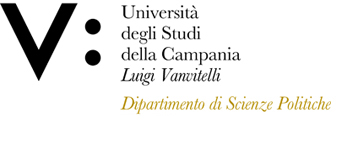Serena SANTIS
Insegnamento di DESTINATION MANAGEMENT
Corso di laurea in SCIENZE DEL TURISMO
SSD: SECS-P/08
CFU: 10,00
ORE PER UNITÀ DIDATTICA: 60,00
Periodo di Erogazione: Secondo Semestre
Italiano
| Lingua di insegnamento | Italiano |
| Contenuti | L’insegnamento ha l’obiettivo di fornire agli studenti competenze analitiche e progettuali per la gestione della destinazione turistica. Il corso si propone di affrontare i temi classici riguardo alle teorie del management per applicarli allo specifico contesto della destinazione turistica. In particolare, il corso affronterà i seguenti argomenti: Il territorio come destinazione turistica; Destination management e governo del territorio; Destination management e relazioni tra attori; Sviluppo locale a base culturale e turismo; La domanda turistica della destinazione; Il finanziamento dello sviluppo turistico; Risorse e programmi europei per il turismo; Innovazione e sviluppo della destinazione turistica; Misurazione e valutazione della performance della destinazione turistica. |
| Testi di riferimento | Management e marketing delle destinazioni turistiche territoriali. Metodi, approcci e strumenti. Umberto Martini, McgrawHill 2017 |
| Obiettivi formativi | Il corso intende fornire una comprensione sugli aspetti di management e governance delle destinazioni, ed in particolare degli aspetti legati alla gestione delle dinamiche di interazione tra i diversi stakeholder di un territorio. |
| Prerequisiti | Nessuno |
| Metodologie didattiche | I metodi didattici prevedono lezioni frontali, case study, discussione di casi, lavori di gruppo. |
| Metodi di valutazione | La valutazione dello studente prevede una prova scritta espressa in trentesimi, e una prova orale, espressa anch’essa in trentesimi. L'eventuale insufficienza alla prova scritta (voto inferiore a 18/30) preclude l'ammissione alla prova orale e determina il mancato superamento dell'esame. La prova scritta si intende superata in caso di risposta positiva al 60% delle domande sottoposte. Per coloro che superano la prova scritta, l'esame può proseguire con una prova orale da tenersi nello stesso giorno. La prova orale consiste in un colloquio articolato in domande, in un numero non inferiore a tre, ciascuna vertente su un argomento specifico del programma, ed è finalizzata ad accertare il livello di conoscenze raggiunto allo studente. |
| Altre informazioni | Le lezioni frontali sono supportate da dispense e altro materiale a cura del docente su specifici argomenti |
| Programma del corso | Il turismo nella prospettiva dello sviluppo sostenibile (1 CFU) : introduzione al fenomeno turistico; l’analisi economica del turismo; Turismo , sostenibilità e sviluppo. |
English
| Teaching language | Italian |
| Contents | The course aims to provide students with analytical and design skills for the management of the tourist destination. The course aims to investigate the classic issues regarding management theories in the specific context of the tourist destination. In particular, the course will address the following topics: The territory as a tourist destination; Destination management and territorial governance; Destination management and relationships between actors; Local development based on culture and tourism; The tourist demand of the destination; Financing of tourism development; European tourism resources and programs; Innovation and development of the tourist destination; Measurement and evaluation of the performance of the tourist destination. |
| Textbook and course materials | Management e marketing delle destinazioni turistiche territoriali. Metodi, approcci e strumenti. Umberto Martini, McgrawHill 2017, capthers 1-2-3-4-5-6 |
| Course objectives | The course aims to provide an understanding of the management and governance aspects of the destinations, and in particular of the aspects related to the management of interaction dynamics between the various stakeholders of a territory. |
| Prerequisites | none |
| Teaching methods | The teaching methods include lectures, case studies, case discussions, teamwork |
| Evaluation methods | The student's assessment includes a written test, expressed in thirtieths, and an oral test, also expressed in thirtieths. Any insufficiency to the written test (grade below 18/30) precludes admission to the oral test and determines failure to pass the exam. The written test is considered passed in the case of a positive response to 60% of questions. For those who pass the written test, the exam can continues with an oral test to be held on the same day. The oral test consists of an interview divided into questions, in a number not less than three, each concerning a specific topic of the program, and is aimed at ascertaining the level of knowledge reached to the student. |
| Other information | The teacher makes available handouts and other material on specific topics. |
| Course Syllabus | Tourism in the perspective of sustainable development(1 CFU): introduction to the tourism phenomenon; the economic analysis of tourism; Tourism, sustainability and development. |








